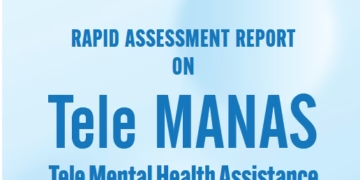December 22, 2018
NEW YORK – When it comes to saving for retirement, K-12 educators benefit from working with a licensed financial professional. According to new research conducted on behalf of AXA Equitable Life, K-12 educators who work with a financial professional reported median 403(b) retirement account balances nearly double of those who go it alone, saving $40,000 versus $21,000 for those who do not work with a licensed, trained professional.
The research, “The Value of the Advisor: The Impact of Advisors on Financial Outcomes Among K-12 Educators,” found the benefits of working with a professional go beyond account balances to also include more effective financial behaviors and greater confidence in achieving retirement goals. Highlights from the research include:
- Saving more: Educators who work with a financial professional have 49 percent higher annual contributions ($5,016 mean annual contribution versus $3,372). They also increase their contributions more frequently.
- Starting earlier: More than half of those surveyed agree they started contributing earlier because of their financial professional.
- Greater diversification: Educators working with a financial professional hold 15 percent more funds in their accounts (an average of 3.9 funds versus 3.4 funds).
- More confidence: 64 percent of those working with a financial professional are confident they will meet their retirement goal versus 56 percent of those not working with one.
- Better decisions: Of those who work with a financial professional, 80 percent agreed their “financial professional helps them make correct investment decisions.”
“We believe educators should be able to retire with dignity. This research shows that working with a licensed, trusted financial professional makes a meaningful difference in their retirement outcomes and is a core component of an effective retirement plan,” said Steve Scanlon, Managing Director and Head of Group Retirement at AXA Equitable Life. “As the proud son of a retired high school administrator, I’ve witnessed firsthand the important role educators play in our society and their unique retirement planning needs.”
The research also quantified the importance of confidence, trust and overall satisfaction between K-12 educators and the financial professionals who serve them. Among those working with a financial professional, respondents with at least a five-year relationship have a median account balance more than double those with a shorter-term relationship ($57,600 versus $21,000). Further, the research found respondents with financial professional relationships of more than five years have greater asset diversification, with an average of 4.3 funds compared to 3.6 funds.
In addition to the duration of time working with a financial professional, the frequency of interaction also matters. Survey respondents who meet more than once per year with their financial professional are more satisfied, at 79 percent satisfaction versus 60 percent satisfaction among those who do not. They are also more confident in their investment choices, at 70 percent versus 47 percent.
The research, “The Value of the Advisor: The Impact of Advisors on Financial Outcomes Among K-12 Educators,” was conducted by independent market research firm Zeldis Research Associates. More than 1,000 K-12 educators across the United States were surveyed, including those who participated in a 403(b) retirement plan either with or without the support of a financial professional. The sample size was nationally representative by age, region, and gender, and spanned 20 different financial institutions. The use of the term “advisor” for purposes of the survey does not necessarily imply that the individual is a registered investment adviser (RIA). The use of these two terms is meant in a general sense of the word or phrase to describe working with an investment advisor, a licensed insurance agent or other financial professional who may sell annuity products.












































